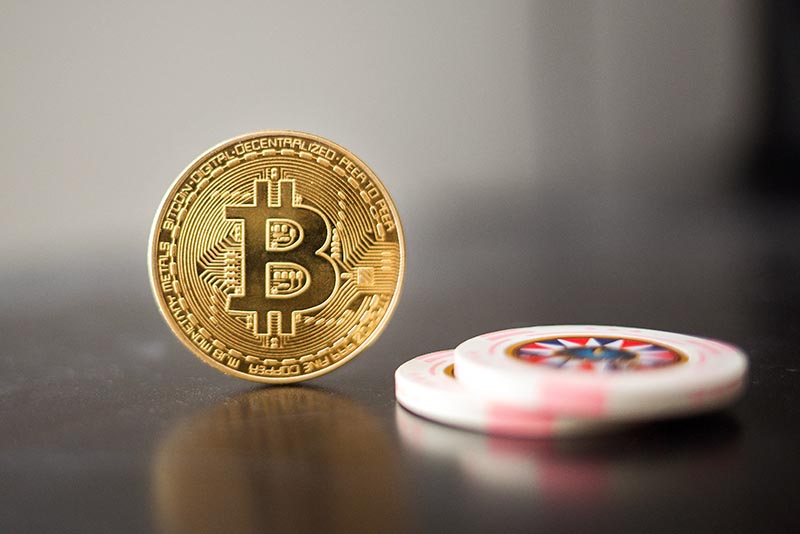
Technological progress and the emergence of innovative digital spaces have had a profoundly positive impact on the transformation of the iGaming industry. One of the promising areas is the integration of entertainment platforms into metaverses. This vector attracts both experienced and beginning operators.
New formats of interaction with players provide opportunities for scaling platforms and revenue growth.
Casino Market experts have prepared a detailed article that examines the features of gambling projects in simulated reality. This information will be useful for business owners seeking new development opportunities.
Metaverses as a Driver for Changes in the iGaming Niche
Metaverse is a virtual environment in which users interact with each other or digital elements in real time. This can be either an imitation of the existing world or a fantasy space.
The architecture of such platforms is based on a combination of several key technologies:
- blockchain solutions;
- Web3 protocols;
- cloud infrastructure;
- VR/AR interfaces;
- gamified mechanics.
The metaverse gives the industry an opportunity not only to win over a new audience but also to rethink the model of interaction with clients.
Key aspects that change the features of gambling include:
- Constant presence. Players do not just launch slots but are transported to a space similar to the real or fictional world.
- Digital property. Thanks to non-fungible tokens, users can own virtual property — from entertainment objects to a share in a casino.
- Decentralised management. Some platforms do not have the usual control — the community makes decisions through DAO.
- Cryptocurrency settlements. All transactions, from bets to internal purchases, are mainly made in digital assets.
Examples of the Implementation of Gaming Spaces
The concept of the metaverse has already found real embodiment in several projects focused on the online casino segment.
Among them, there are platforms with working economic models:
- Decentral Games (on the Decentraland platform). This is a full-fledged crypto portal with poker, slots, roulette, etc. Operation is controlled through DAO: token holders participate in voting on changes or the introduction of new functions, and part of the profit is distributed among the community. Customers are also rewarded in the internal currency.
- ICE Poker. The project combines betting with the NFT economy. To participate in tournaments, users need to have certain virtual clothes. It turns the process into an element of the gamified style. This is an example of the synthesis of classic gambling with the Play-to-Earn model.
- The Sandbox. At the time of writing, there were no full-fledged casinos here, but the infrastructure already makes it possible to host mini-sessions, implement NFT mechanics, and carry out internal transactions. Companies are creating entertainment zones that can be adapted to entertainment services.
How Does the Role of Gamblers in the Metaverse Change
It is not just about realistic graphics or technical innovations. The most important thing is the new approach to the part of casino fans in the ecosystem:
- Participation in the portal’s economy. Users are not limited by their client status. They can invest in digital assets, rent them out, earn income, or participate in DAO voting.
- Identity through an avatar. The virtual image of players saves the history of actions, equipment, and achievements. This creates an emotional connection that increases customer retention.
- Gamified interaction outside the main session. Ratings, quests, social functions, and rewards are implemented across the entire platform, rather than in individual products. This approach helps maintain interest for a very long time.
- Events as a way to attract clients. Online concerts, internal championships, and competitions — all this allows entrepreneurs to integrate gambling activities into social interaction and create additional entry points for brands.
Virtual Casino Economy

The financial model of entertainment for money in the metaverse forms a multi-level profit structure, going far beyond traditional online betting.
Monetisation Methods
There are several key areas that deserve special attention:
- Classic games with cryptocurrency bids. Slots, poker, roulette, and crash content involve the use of digital assets (ETH, MATIC, USDT, etc.). The income of casino establishment owners is directly tied to the volume of deposits and the internal economy of coins.
- Sale of non-fungible tokens. Monetisation involves purchasing access to virtual tables, chips, accessories, and passes to various events. Operators can sell advertising spaces. In some cases, this area provides up to 40% of the total income.
- Play-to-Earn and Stake-to-Earn mechanics. Customers receive rewards for participating in tournaments, owning NFTs, or being active on the platform. This increases engagement indicators.
- Brand and marketing integration. The metaverse allows businessmen to create built-in promotion formats: banners, events, and affiliate zones with entertainment modules.
- Renting a space and B2B licensing. Owners of virtual locations lease land for casinos or gaming applications, which essentially creates a digital franchise model.
Costs and Complexity of Launching a Startup
The implementation of a virtual casino in the metaverse requires more investment than typical White label solutions:
- Creation of an environment — 3D locations, game mechanics, crypto functions, and NFTs. The typical budget for a basic MVP is $50,000–$100,000 (depending on the depth of the digital world’s development).
- Acquisition or lease of virtual land. Prices in Decentraland, The Sandbox, and other platforms can reach several hundred thousand dollars, depending on the location and traffic.
- Infrastructure and security. Smart contract protection, anti-fraud systems, and server architecture require technical audit and additional costs that are often underestimated.
- Marketing and player acquisition. In the absence of organic traffic, brands have to invest in events, NFT giveaways, influencer services, and the crypto community.
Profitability: Cases and Trends
Public financial data in the Web3 sector is limited, but analytics of DAO projects makes it possible to assess real efficiency.
For example, Decentral Games' revenue from virtual poker and slots reached more than $1 million per month during peak periods in 2022. Part of the profit was distributed among token holders through DAO mechanisms.
ICE Poker platforms had an ROI of over 60% per annum for NFT owners at the start, but over time, the figures have significantly decreased due to the inflation of rewards and competition.
If we talk about hybrid startups (they combine a casino, a marketplace, and various events), they reach the break-even points on average 8–14 months after launch, depending on the cost of customer acquisition (CAC), the price of renting a virtual land, and the community’s activity.
The final profitability depends on the balance of 3 factors: stable tokenomics, the level of user retention, and the constant support of people’s interest.
Legal Aspects of the Work of Virtual Casinos in Metaverses

Every project that involves accepting bets, paying out winnings, storing clients’ assets, or using cryptocurrencies is potentially subject to regulatory control.
Gambling portals must comply with:
- casino legislation of the country where the legal entity is registered or from which it drives traffic;
- rules for conducting financial transactions;
- KYC/AML standards;
- requirements for the protection of personal data, including GDPR, if users from the EU are attracted.
At the time of writing this article, many jurisdictions did not have a direct legal definition of the metaverse. However, entertainment content within it is viewed through the prism of the current law on iGaming.
Features of the Regulation of Cryptocurrency and Digital Tokens
Operators that provide services in the simulated reality use virtual coins as payment instruments and also introduce NFTs as a form of property rights (to items, avatars, space, etc.).
The attitude of the authorities to the use of these assets varies depending on the country:
- In the USA, Japan, Singapore, and the EU, tokens with an economic function may be subject to regulation as securities. In this case, it is necessary to comply with the rules of issue, information disclosure, and reporting.
- NFTs that generate income or provide the right to receive a share of the casino's revenues are defined as investment instruments in several regions. Therefore, they require licensing or registration with financial regulators.
- The use of casino tokens for betting (within the metaverse) can be classified as a gaming activity even in cases where the coins do not have a fiat equivalent.
Features of Various Jurisdictions
There is currently no country that fully regulates gaming activities in the metaverse. However, companies seek to register in those regions where entertainment licences and crypto regulation are available at the same time:
- Curacao, Anguilla, Malta, and Costa Rica are popular offshore zones for crypto casinos with minimal transparency requirements. These states are suitable for MVP or test launches, but are distrusted by payment systems and partners.
- Israel, Estonia, Gibraltar, and Singapore — jurisdictions with progressive regulation of cryptocurrencies, where it is possible to legally integrate Web3 into the brand’s structure.
- Ukraine also declares its intention to allow online gambling with partial involvement of digital assets. However, the legal basis for metaverse-based solutions has not yet been determined.
Geolocation of users remains a key factor: even if a project is registered in a loyal jurisdiction, access by players from countries where betting is banned can lead to legal claims.
Risks for Investors and Operators
The main legal complexities that entrepreneurs face are the following:
- freezing of assets or domain blocking at the request of regulators;
- lawsuits from users due to changes in remuneration rules or devaluation of NFTs;
- loss of control over a DAO project if the management framework is not legally established;
- lack of protection of intellectual property in a decentralised environment.
For this reason, casino owners often implement a hybrid administrative structure — a combination of a classic licensed legal entity for financial transactions and a special environment for gamified interaction.
Technological Base

Casinos in metaverses operate on the blockchain. Thanks to the decentralised infrastructure, every action (bet, win, or purchase of digital items) becomes transparent and constant. Everything is recorded in an open registry that cannot be changed.
Another important advantage is payments. Such cryptocurrencies as ETH, MATIC, SOL, or internal platform tokens provide an opportunity for players and entrepreneurs to work without the involvement of banks and the determination of limits. This significantly speeds up the circulation of funds and reduces fees.
24/7 access to the game, as well as independence from currency control and bank holidays — all these are the advantages of the cryptocurrency model. But there is also a flip side: due to the high anonymity of wallets, operators have to carefully implement KYC/AML tools to avoid regulatory problems.
Smart Contracts: Fair Play Without Intermediaries
The principle “code is law” fits perfectly into the logic of metaverse casinos. Self-executing contracts automate the gameplay: winnings are credited instantly, without intervention from the administrator, and according to the rules.
For players, this means trust — no one can change the results or delay the payment. Many platforms allow anyone to view the smart contract code, which increases the level of transparency.
Another advantage is the ability to launch a DAO. Clients can vote for new products, changes in requirements, or income distribution.
But it is important to remember: if the code is written with errors or has not been checked by auditors, the system may break down. Therefore, companies working in the Web3 gambling area actively involve specialists such as CertiK, Hacken, or OpenZeppelin to verify smart contracts.
VR and AR: A New Quality of Play
If a regular online casino is a website with buttons, then the metaverse is a full-fledged virtual environment. VR and AR technologies make the experience of being in a digital hall as similar as possible to visiting a real one.
Users can not only place bids but also find themselves at a virtual table, see avatars of other customers, communicate via voice chat, and touch objects. This creates a sense of excitement, which is often lacking in classic interfaces.
Gamblers can create unique characters, decorate them with accessories, and also participate in themed events or tournaments. For a digital portal, this tool means the attraction of visitors, and for players, this is a way to express themselves.
Another important point is multiplatform. Many metaverses work equally well both in VR headsets (Meta Quest, HTC Vive) and on regular smartphones or computers. This expands the audience and reduces the entry barrier.
For AR/VR operators, this is not only a new level of interaction but also new ways to earn money. Selling VIP spaces, renting to brands, creating non-fungible tokens — all this turns such an environment into a real business.
Profitability and Prospects for Investors and Entrepreneurs

Casinos in the metaverse appear when the intersection of 3 powerful trends takes place: gambling, cryptocurrencies, and virtual spaces.
According to Messari, Web3 gambling was one of the most stable areas among decentralised projects during 2023–2024. In some blockchain networks, such as Tron or Binance Smart Chain, it accounted for more than a third of all activity.
Other experts, including Grand View Research, believe that the metaverse market will reach $800 billion by 2030. The entertainment segment in this structure will only grow stronger. This creates favourable conditions for:
- operators who want to reach the Web3 audience with new interactive formats;
- investors considering promising assets for portfolio diversification.
What Affects the Profitability of Metaverse Platforms
The level of earnings depends on several factors:
- Technological base. The quality of the visual experience, convenient integration with crypto wallets, and VR/AR support are basic requirements. If the interface is complicated and the graphics resemble a 2010s flash game, players will go to another site.
- Customer acquisition and retention. In this case, classic gamification works well: rewards in the form of NFTs, personal avatars, modes with PvP, and loyalty programs with the level-up system. All this continues the user's life cycle on the platform and increases their LTV.
- Monetisation strategy. First of all, it is worth mentioning direct income — commissions from sessions, the sale of internal assets, and the circulation of non-fungible tokens. Additional profits are brought by advertising in virtual locations, integration with brands, and sponsorship of events.
- Investment size. To develop a full-fledged gaming zone in the metaverse, it is necessary to invest from $100,000 to $200,000. For this money, entrepreneurs will receive only basic functionality. Marketing for a global launch can cost twice or even 3 times more.
What Risks Should be Taken Into Account
Among the main threats to operators and investors, we can name the following factors:
- Legal uncertainty. In many jurisdictions, crypto gambling still has no clear rules. Some successful startups (for example, ICE Poker) bypass them by registering subsidiaries in “convenient” countries and attracting DAOs.
- Cryptocurrency volatility. Token rates can fall or rise rapidly, which affects the income of both casino owners and their clients.
- Competition in the Web3 space. Although the niche is still young, strong players are emerging. Therefore, those who build a stable economy, form an active community and can create a recognisable brand will have an advantage.
The Main Things about Metaverses and Virtual Gaming Halls
The new direction offers excellent prospects for entrepreneurs and investors. To achieve high performance, it is necessary to take into account several important aspects:
- Technological base. To create and develop startups, business owners should use innovative tools — blockchain, smart contracts, and VR/AR solutions.
- New user experience. It is important to create ideal conditions to make gamblers fully immerse themselves in the virtual universe. Besides, operators need to pay attention to the transparency of processes and automation of payments.
- Legal uncertainty. Entertainment portals in metaverses are not regulated in all countries. It is necessary to monitor changes in legislation and respond promptly to them in order to avoid losing a licence and incurring losses.
This article was prepared by Casino Market specialists. They have vast experience in the iGaming industry and will help you integrate modern services.
You can order the development of turnkey platforms, installation of security systems, and connection of payment tools from our studio.
Professional marketers will create and implement an effective program to attract and retain customers.
Have questions or want to order services?
Contact our consultants:
- e-mail: manager@casino-market.com
- feedback form.
Check the information used to contact us carefully. It is necessary for your safety.
Fraudsters can use contacts that look like ours to scam customers. Therefore, we ask you to enter only the addresses that are indicated on our official website.
Be careful! Our team is not responsible for the activities of persons using similar contact details.




















